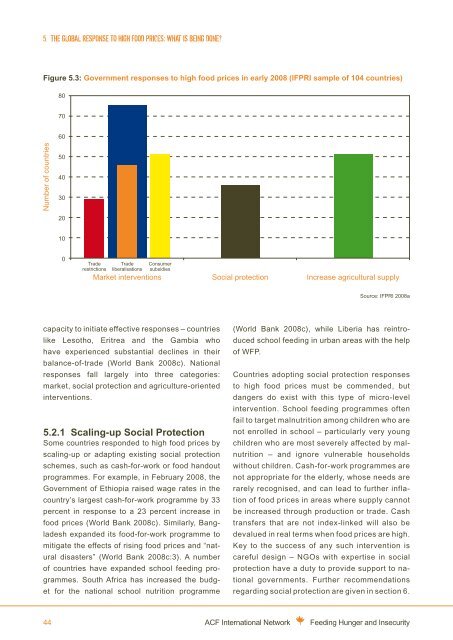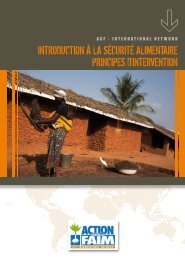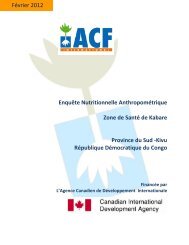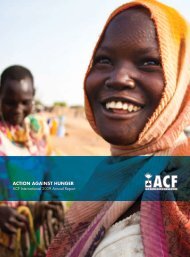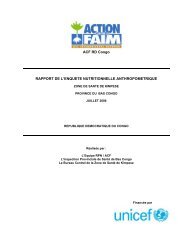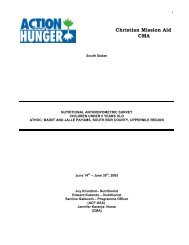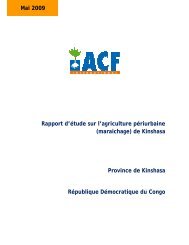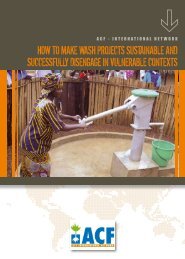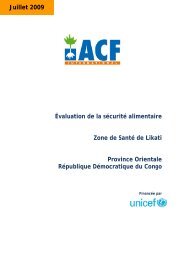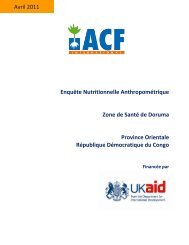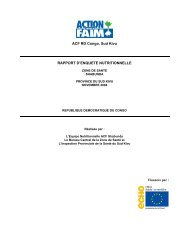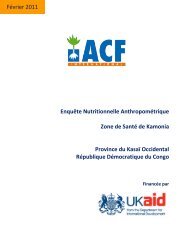Feeding hunger and insecurity
Feeding hunger and insecurity
Feeding hunger and insecurity
- No tags were found...
Create successful ePaper yourself
Turn your PDF publications into a flip-book with our unique Google optimized e-Paper software.
5. The global response to high food prices: what is being done?Figure 5.3: Government responses to high food prices in early 2008 (IFPRI sample of 104 countries)807060Number of countries50403020100TraderestrictionsTradeliberalisationsConsumersubsidiesMarket interventions Social protection Increase agricultural supplySource: IFPRI 2008acapacity to initiate effective responses – countrieslike Lesotho, Eritrea <strong>and</strong> the Gambia whohave experienced substantial declines in theirbalance-of-trade (World Bank 2008c). Nationalresponses fall largely into three categories:market, social protection <strong>and</strong> agriculture-orientedinterventions.5.2.1 Scaling-up Social ProtectionSome countries responded to high food prices byscaling-up or adapting existing social protectionschemes, such as cash-for-work or food h<strong>and</strong>outprogrammes. For example, in February 2008, theGovernment of Ethiopia raised wage rates in thecountry’s largest cash-for-work programme by 33percent in response to a 23 percent increase infood prices (World Bank 2008c). Similarly, Bangladeshexp<strong>and</strong>ed its food-for-work programme tomitigate the effects of rising food prices <strong>and</strong> “naturaldisasters” (World Bank 2008c:3). A numberof countries have exp<strong>and</strong>ed school feeding programmes.South Africa has increased the budgetfor the national school nutrition programme(World Bank 2008c), while Liberia has reintroducedschool feeding in urban areas with the helpof WFP.Countries adopting social protection responsesto high food prices must be commended, butdangers do exist with this type of micro-levelintervention. School feeding programmes oftenfail to target malnutrition among children who arenot enrolled in school – particularly very youngchildren who are most severely affected by malnutrition– <strong>and</strong> ignore vulnerable householdswithout children. Cash-for-work programmes arenot appropriate for the elderly, whose needs arerarely recognised, <strong>and</strong> can lead to further inflationof food prices in areas where supply cannotbe increased through production or trade. Cashtransfers that are not index-linked will also bedevalued in real terms when food prices are high.Key to the success of any such intervention iscareful design – NGOs with expertise in socialprotection have a duty to provide support to nationalgovernments. Further recommendationsregarding social protection are given in section 6.44ACF International Network<strong>Feeding</strong> Hunger <strong>and</strong> Insecurity


